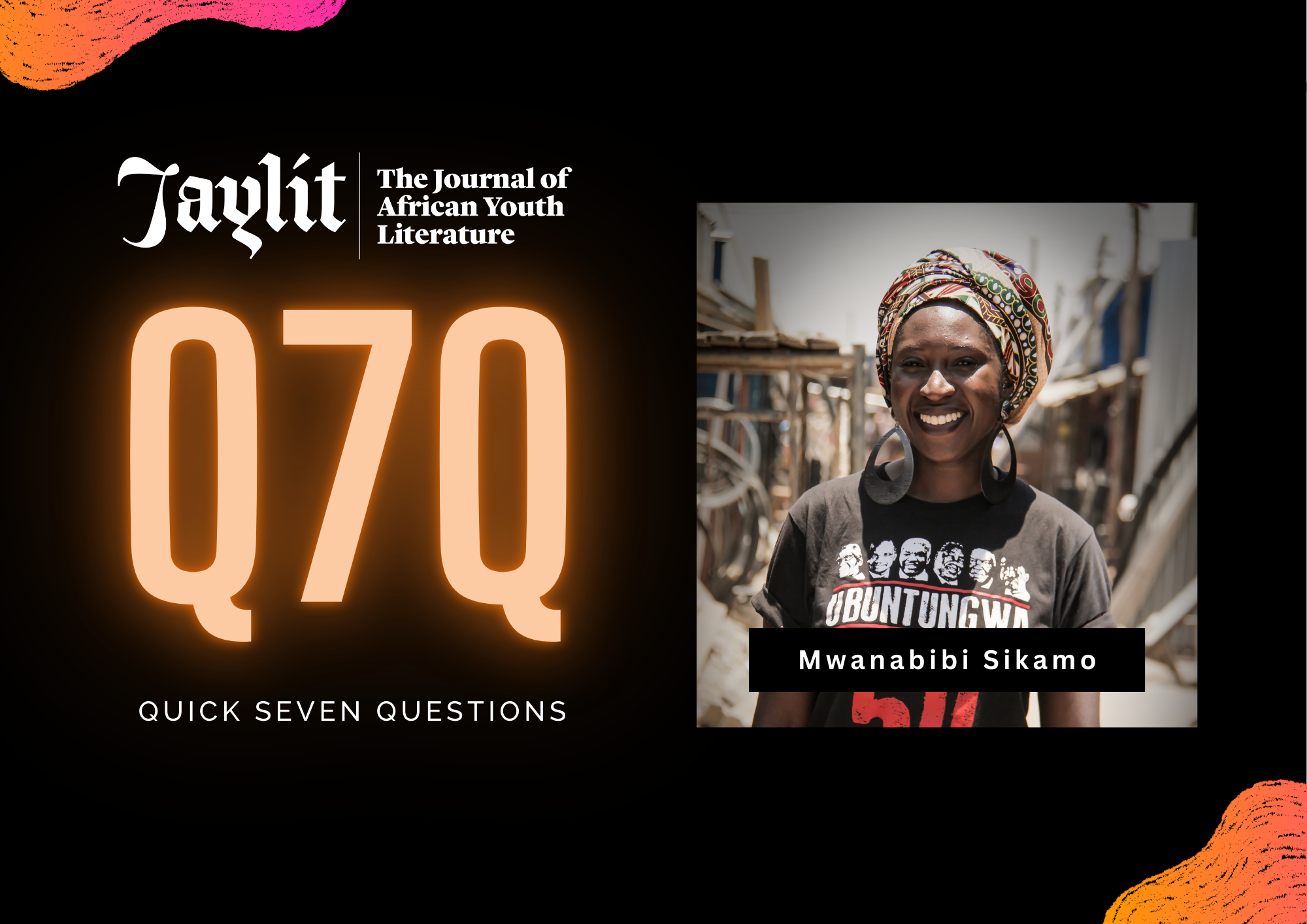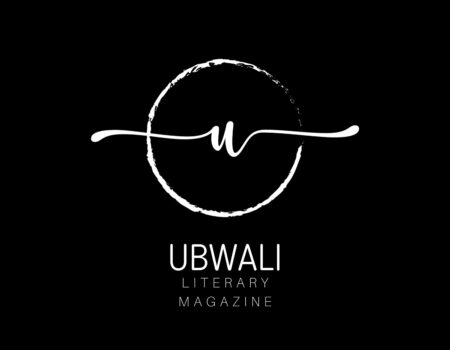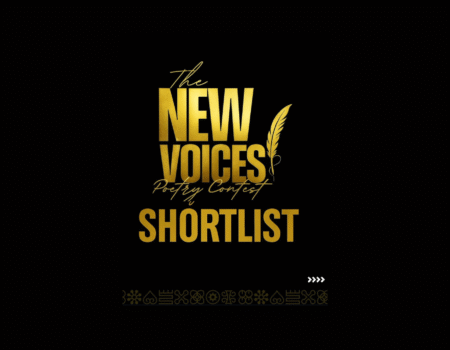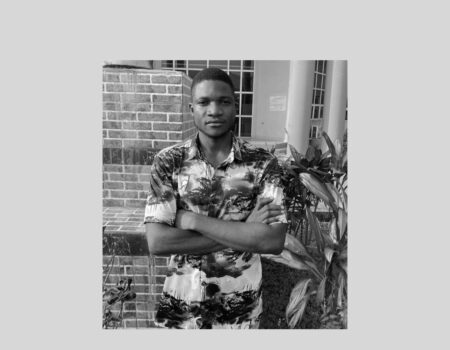Mwanabibi Sikamo is one of six Zambian writers shortlisted for the 2025 Ubwali Hope Prize, presented by Ubwali Literary Magazine in partnership with Shenandoah. The winner, who will be announced in a few days, will receive $500 and be featured in the fall issue of Shenandoah.
Mwanabibi was shortlisted for her essay, “Conditioned Roots”, published in Issue 3 of Ubwali Literary Magazine. The essay can be read here.
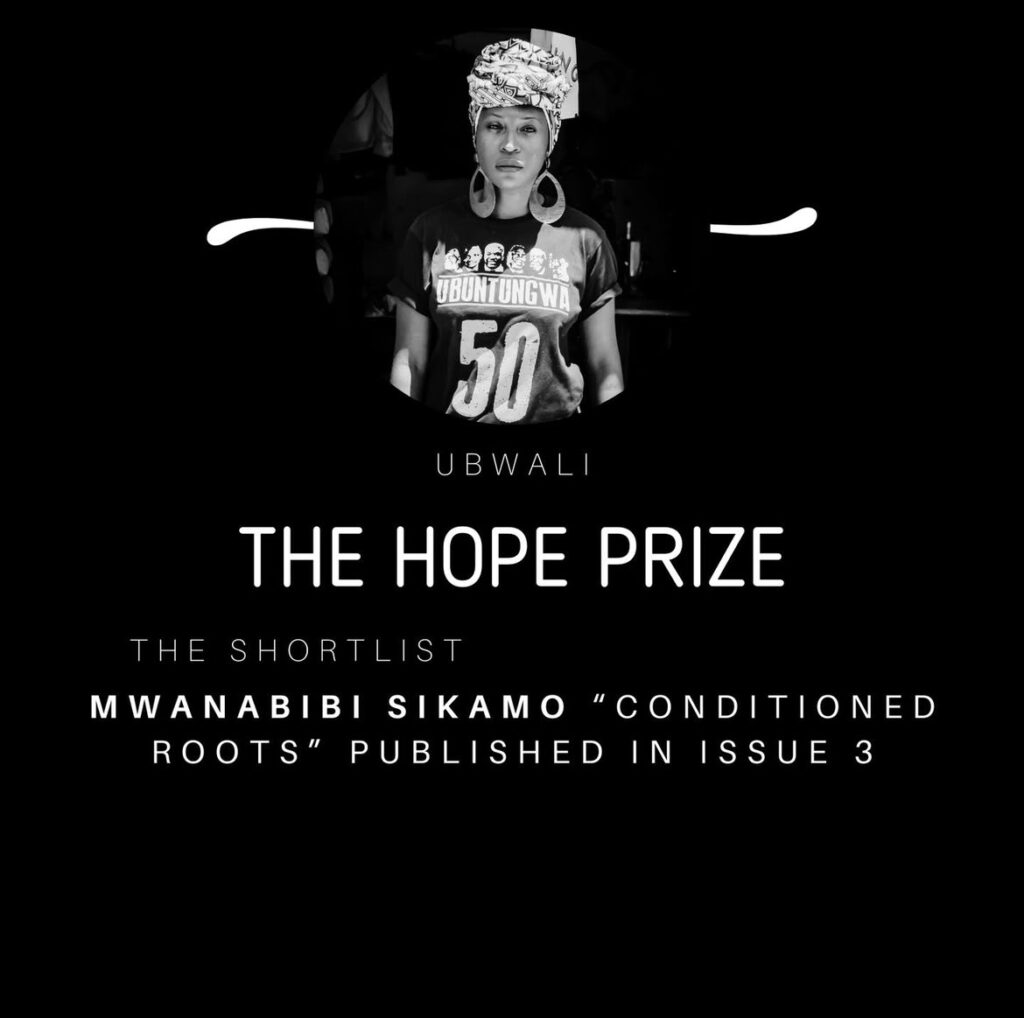
Below is our “Quick Seven Questions” interview with Mwanabibi Sikamo.
Enjoy!
~
Q1 – Who is Mwanabibi Sikamo?
This is always a tough question. There have been many versions of me and the answer sometimes depends on whose asking. I’ve been a creator of jewellery from African cloth, and an advocate for natural hair, I am an African Feminist, I’ve been a TV presenter and still am a producer, script writer, and now writer of fiction, essays, and children’s stories. My life has been everything but boring. I look back on all this, look at where I’m at now and think that the common thread is storytelling. A very particular type of storytelling. One rooted in who I am at heart, which is a fierce believer in all things African and in particular Zambian – a curiosity about our past, an optimism about our future, and a yearning to express our current condition.
Q2 – What is the inspiration behind Conditioned Roots?
I was always going to write this essay but I resisted it fervently, putting the writing off until I couldn’t any longer.
In 2013 and for about 4 years after, my hair was my personality. I was a natural hair blogger. Along with friends, I ran a business supplying products and conducting workshops all about hair. I even did a yearlong challenge of natural hair styles – a hairstyle a week for a year – blogging and taking pictures as I did it so that for a while if you Googled me all you’d find were pictures of my hair. And then I burnt out, moved into TV, then writing. Natural Hair blogging felt light years away, and (although I’m still natural) not at the forefront of my mind. In fact, I wanted to get away from it, not because I’m not proud of that movement that we helped create but because I wanted to prove to myself and to others that I wasn’t a one trick pony. I could write about far more interesting things than “just hair”. Then the seed for this essay germinated, it crept to life. The form of a recipe niggled at me until I couldn’t ignore it. My inspiration in the end was to write about my experience while playing with form, not in a prescriptive sense as I would have before, but with a sense of nostalgia.
Q3 – What hopes did you have for the essay when you were submitting it to Ubwali Literary Magazine?
Like everyone else who submits their work, I wanted people to read and appreciate it, but more than any other essay I’ve had published I was nervous about people’s reactions. Creative Non-Fiction is a baring of the soul – this sounds dramatic but Fiske Nyirongo, Ubwali’s CNF Editor described writing essays as feeling like “standing naked in the middle of a busy road”, and I couldn’t agree more. It is at once exhilarating and terrifying. So, I hoped the essay would be accepted for what it is and not for what people might expect of me, because I’m much more relaxed than I ever was about hair. Beyond that, I had no expectations.
Q4 – What does ending up on the Hope Prize shortlist mean to you?
Validation. Given how nervous I was about having this published it is incredibly gratifying for the essay to be shortlisted. I have had readers tag me, telling me how affirming this essay is, and I’m energized by the fact that the mission I began so long ago is still relevant today; women still need to read reflections of their hair stories, and celebrating indigenous hair care is still essential. That this prize is given by a Zambian magazine means a lot to me, it means I’m writing stuff that people get. I’ve read some incredible work in Ubwali this year and I did not expect to be on the shortlist at all.
Q5 – What would winning mean for you?
Writing is such a solitary activity; this is fodder for an overactive inner critic. My opinion of my work swings wildly. When I am faced with a blank screen, I’m unsure about how I’ve ever managed to fill pages, when I’m in full stride I love everything I’ve written and then when I’ve completed a piece, I become unsure again, wondering how I could ever be audacious enough to imagine I could write anything worth sharing. Winning would mean gaining confidence in my voice, taking more risks with form and, as a “self-taught” writer, industry endorsement.
Q6 – How has this changed, inspired, motivated or improved you the writer?
I’m not sure yet. I’ve been doing a lot of procrastination lately. Ideas swirling around but not quite landing. I think this might be because I’ve become a little more ambitious. I know I can do more with my writing so I want to do more. To stretch myself further than I have before. And I think subconsciously I’m a little afraid of this. But I have this conviction that when I do close the notebook and pick up the laptop, I’ll do the page justice. At least, that’s what I feel today.
Q7 – What future plans do you have for your writing?
So many. I’m continuing to write fiction, essays and children’s stories, I would like to adapt some of these into audio and film scripts, maybe even a play. I just think it would be so cool to be able to call myself a playwright – there I go attempting to add more titles to my identity. Some of my essays are calling out to end up as collections and so is my fiction. I go wherever the writing takes me but of course the ultimate goal is to see my name on a book.
~
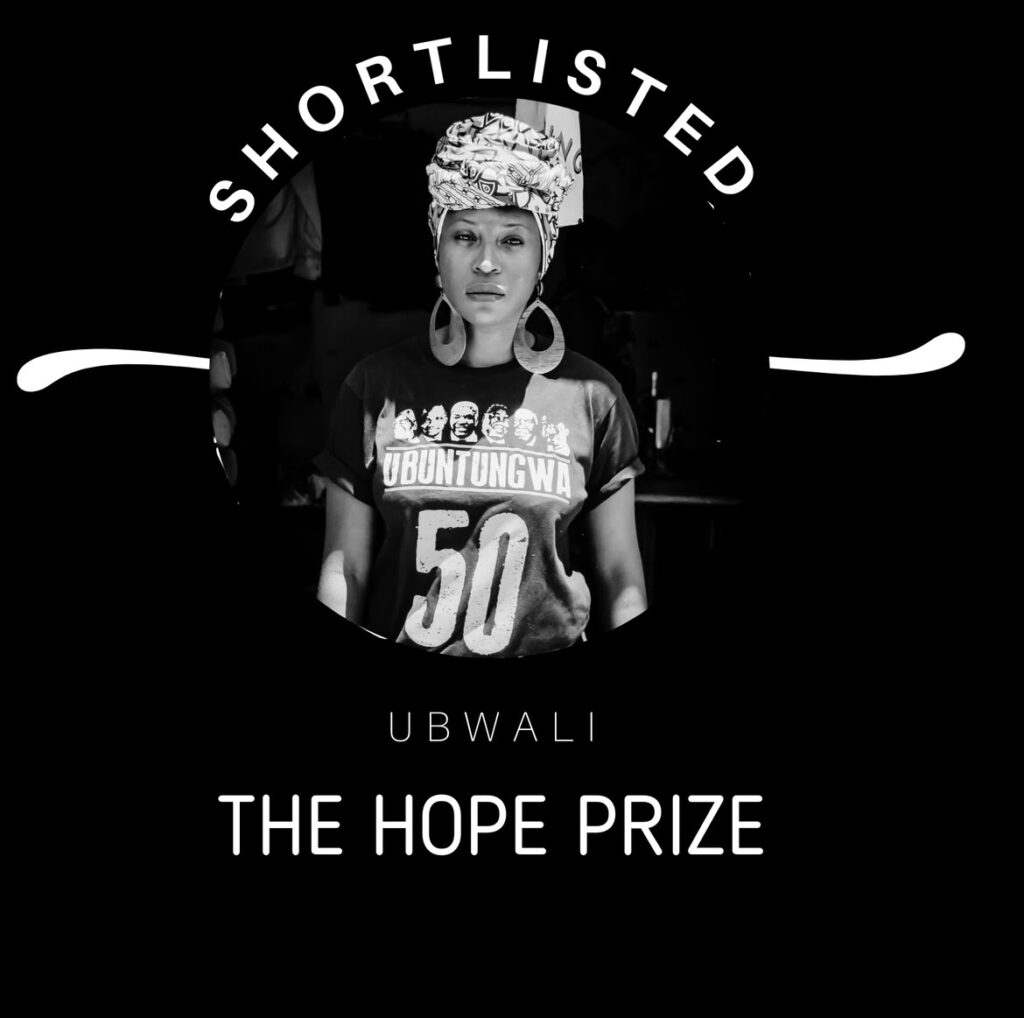
Mwanabibi Sikamo is a Zambian storyteller and award-winning filmmaker. She writes about the lived African experience and the confluence between culture, creativity and indigenous spirituality. Her essays play with form and function and have appeared in The Michigan Quarterly Review, The Weganda Review, Ubwali, Brink and elsewhere. A Pushcart-Nominated essayist, she was a finalist for the Sevhage Literary Prize for Creative Non-Fiction (2023) and The Porter House Review Editors Prize for Nonfiction (2025).



